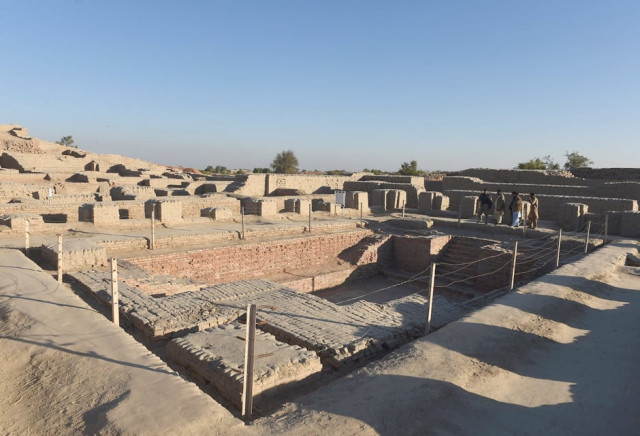Moot discusses Alexander’s Indus Valley foray
CM inaugurates three-day conference on Greek conqueror's time in Indus Valley

Speakers at an international conference said on Wednesday that no figure in history has held such an enduring appeal for historians than Alexander, whose campaign in the Indus Valley has been etched in European history as the dawn of Western domination of north-western India.
At the three-day conference "Alexander in the Indus Valley", the speakers discussed the ancient Greek conqueror's life, expedition, victories as well as his entry in the Indus Valley region of present-day Pakistan.
Sindh Chief Minister Murad Ali Shah inaugurated the conference, organized by the Endowment Fund Trust for Preservation of the Heritage of Sindh, at IBA's city campus.
He said that such conferences bringing together men of letters to Sindh would help create a clear understanding of each other and revive old contacts and promote and enrich our literature, education, and meaningful research. He said Alexander's stories had become intertwined with local folklore, and that there was once a road in Sehwan named after him.
"Although Sehwan may or may not be the city the Greeks called Sindhimana, (Dutch Indologist) PHL Eggermont states that the fort possibly retains evidence that will help understand the full impact of Alexander's time spent in the Indus region."
Shah waxed lyrical of the boy king who "dreamed of matching the heroic feats of Achilles". He talked about his stunning military successes which saw him defeat the Persian Empire at the age of 25.
"He was in the Indus Valley for a very short period of over two years. But it was for the first time in history when the east and west were linked," he said.
He observed that despite his greatness and the loyalty of his army, Alexander's premature death resulted in his empire ending in fragments due to intrigues and infighting.
The conference opened with a traditional dance performance of the Kalash tribe from Chitral in the country's north. Hamid Akhund hosted the first session in which Sindh Culture Minister Syed Sardar Shah, Hamid Haroon, Jahangir Siddiqui, and others spoke.
Art historian Fakir Aijazuddin, University of Oxford's Dr Robin Lane Fox, Dr Richard Stoneman , a honorary professor at the University of Exeter, and Dr Paul Cartledge of the University of Cambridge were among the speakers.
Dr Paul Cartledge, who has taught classical archaeology and history at various universities, including the University of Cambridge University, talked about Alexander's greatness while referring to his references by Greek poets. He said that the Hellenistic world that Alexander did so much to create was broader while being more diverse and inclusive than that of the Spartans.
Published in The Express Tribune, February 23rd, 2023.



















COMMENTS
Comments are moderated and generally will be posted if they are on-topic and not abusive.
For more information, please see our Comments FAQ